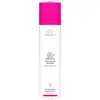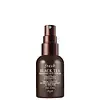What's inside
What's inside
 Key Ingredients
Key Ingredients

 Benefits
Benefits

 Concerns
Concerns

 Ingredients Side-by-side
Ingredients Side-by-side

Water
Skin ConditioningGlycolic Acid
BufferingButylene Glycol
HumectantGlycerin
HumectantSodium Hydroxide
BufferingLactic Acid
BufferingSalicylic Acid
MaskingTartaric Acid
BufferingVitis Vinifera Juice Extract
AntioxidantAloe Barbadensis Leaf Juice
Skin ConditioningOpuntia Ficus-Indica Extract
Skin ConditioningAesculus Hippocastanum Seed Extract
Skin ConditioningCamellia Sinensis Leaf Extract
AntimicrobialRubus Idaeus Fruit Extract
AstringentSaccharomyces Cerevisiae Extract
Skin ConditioningBuddleja Davidii Meristem Cell Culture
Skin ConditioningSclerocarya Birrea Seed Oil
HumectantSodium Hyaluronate Crosspolymer
HumectantAllantoin
Skin ConditioningHydroxyethylcellulose
Emulsion StabilisingGalactoarabinan
Propanediol
SolventCitric Acid
BufferingTetrasodium Glutamate Diacetate
Xanthan Gum
EmulsifyingHexylene Glycol
EmulsifyingPhenoxyethanol
PreservativeSodium Benzoate
MaskingCaprylyl Glycol
EmollientPotassium Sorbate
PreservativePentylene Glycol
Skin ConditioningSodium Carbonate
BufferingSodium Chloride
MaskingDisodium Phosphate
BufferingSodium Phosphate
BufferingEthylhexylglycerin
Skin ConditioningWater, Glycolic Acid, Butylene Glycol, Glycerin, Sodium Hydroxide, Lactic Acid, Salicylic Acid, Tartaric Acid, Vitis Vinifera Juice Extract, Aloe Barbadensis Leaf Juice, Opuntia Ficus-Indica Extract, Aesculus Hippocastanum Seed Extract, Camellia Sinensis Leaf Extract, Rubus Idaeus Fruit Extract, Saccharomyces Cerevisiae Extract, Buddleja Davidii Meristem Cell Culture, Sclerocarya Birrea Seed Oil, Sodium Hyaluronate Crosspolymer, Allantoin, Hydroxyethylcellulose, Galactoarabinan, Propanediol, Citric Acid, Tetrasodium Glutamate Diacetate, Xanthan Gum, Hexylene Glycol, Phenoxyethanol, Sodium Benzoate, Caprylyl Glycol, Potassium Sorbate, Pentylene Glycol, Sodium Carbonate, Sodium Chloride, Disodium Phosphate, Sodium Phosphate, Ethylhexylglycerin
Water
Skin ConditioningGlycerin
HumectantButylene Glycol
HumectantPentylene Glycol
Skin ConditioningJojoba Oil PEG-150 Esters
Skin ConditioningMethyl Gluceth-20
HumectantPEG-6 Caprylic/Capric Glycerides
EmulsifyingAcacia Senegal Gum
MaskingPEG-40 Hydrogenated Castor Oil
EmulsifyingLycium Chinense Fruit Extract
AntioxidantSaccharomyces Ferment Filtrate
HumectantCamellia Sinensis Leaf Extract
AntimicrobialRubus Fruticosus Leaf Extract
MaskingLitchi Chinensis Seed Extract
Skin ConditioningAcetyl Tetrapeptide-5
HumectantTocopheryl Acetate
AntioxidantTocopherol
AntioxidantPolymethylsilsesquioxane
Carbomer
Emulsion StabilisingPEG-150
HumectantSorbitol
HumectantSodium Hydroxide
BufferingParfum
MaskingRhizobian Gum
Maltodextrin
AbsorbentAlgin
MaskingXanthan Gum
EmulsifyingAdenosine
Skin ConditioningPolyvinyl Alcohol
Cellulose Gum
Emulsion StabilisingCitric Acid
BufferingSodium Metabisulfite
AntioxidantDiamond Powder
AbrasiveSodium Benzoate
MaskingPotassium Sorbate
PreservativeHydroxyethylcellulose
Emulsion StabilisingSodium Citrate
BufferingBiotin
AntiseborrhoeicPhenoxyethanol
PreservativeLinalool
PerfumingCitronellol
PerfumingGeraniol
PerfumingWater, Glycerin, Butylene Glycol, Pentylene Glycol, Jojoba Oil PEG-150 Esters, Methyl Gluceth-20, PEG-6 Caprylic/Capric Glycerides, Acacia Senegal Gum, PEG-40 Hydrogenated Castor Oil, Lycium Chinense Fruit Extract, Saccharomyces Ferment Filtrate, Camellia Sinensis Leaf Extract, Rubus Fruticosus Leaf Extract, Litchi Chinensis Seed Extract, Acetyl Tetrapeptide-5, Tocopheryl Acetate, Tocopherol, Polymethylsilsesquioxane, Carbomer, PEG-150, Sorbitol, Sodium Hydroxide, Parfum, Rhizobian Gum, Maltodextrin, Algin, Xanthan Gum, Adenosine, Polyvinyl Alcohol, Cellulose Gum, Citric Acid, Sodium Metabisulfite, Diamond Powder, Sodium Benzoate, Potassium Sorbate, Hydroxyethylcellulose, Sodium Citrate, Biotin, Phenoxyethanol, Linalool, Citronellol, Geraniol
 Reviews
Reviews

Ingredients Explained
These ingredients are found in both products.
Ingredients higher up in an ingredient list are typically present in a larger amount.
Butylene Glycol (or BG) is used within cosmetic products for a few different reasons:
Overall, Butylene Glycol is a safe and well-rounded ingredient that works well with other ingredients.
Though this ingredient works well with most skin types, some people with sensitive skin may experience a reaction such as allergic rashes, closed comedones, or itchiness.
Learn more about Butylene GlycolCamellia Sinensis Leaf Extract is derived from the leaves of the tea plant. Black tea, green tea, and oolong tea are all harvested from this plant.
This ingredient has many skin benefits:
This ingredient contains polyphenols, a strong antioxidant. Antioxidants help fight off molecules that damage skin cells.
On top of that, the antioxidants in green tea neutralize free-radicals from the sun. This gives the skin some extra UV protection, but should not replace sunscreen.
Many components of tea have anti-inflammatory properties.
Polyphenols and L-theanine help soothe the skin and reduce irritation. The caffeine in Camellia Sinensis Leaf Extract helps calm inflamed blood vessels.
Other compounds found in tea include: Vitamin Bs, linoleic acid, magnesium, calcium, iron, and zinc.
Research has shown both drinking Camellia Sinensis Leaf Tea and applying it to the skin can help boost skin elasticity and hydration. Studies also show using tea extract may reduce sebum, or oil, production.
Learn more about Camellia Sinensis Leaf ExtractCitric Acid is an alpha hydroxy acid (AHA) naturally found in citrus fruits like oranges, lemons, and limes.
Like other AHAs, citric acid can exfoliate skin by breaking down the bonds that hold dead skin cells together. This helps reveal smoother and brighter skin underneath.
However, this exfoliating effect only happens at high concentrations (20%) which can be hard to find in cosmetic products.
Due to this, citric acid is usually included in small amounts as a pH adjuster. This helps keep products slightly more acidic and compatible with skin's natural pH.
In skincare formulas, citric acid can:
While it can provide some skin benefits, research shows lactic acid and glycolic acid are generally more effective and less irritating exfoliants.
Most citric acid used in skincare today is made by fermenting sugars (usually from molasses). This synthetic version is identical to the natural citrus form but easier to stabilize and use in formulations.
Read more about some other popular AHA's here:
Learn more about Citric AcidGlycerin is already naturally found in your skin. It helps moisturize and protect your skin.
A study from 2016 found glycerin to be more effective as a humectant than AHAs and hyaluronic acid.
As a humectant, it helps the skin stay hydrated by pulling moisture to your skin. The low molecular weight of glycerin allows it to pull moisture into the deeper layers of your skin.
Hydrated skin improves your skin barrier; Your skin barrier helps protect against irritants and bacteria.
Glycerin has also been found to have antimicrobial and antiviral properties. Due to these properties, glycerin is often used in wound and burn treatments.
In cosmetics, glycerin is usually derived from plants such as soybean or palm. However, it can also be sourced from animals, such as tallow or animal fat.
This ingredient is organic, colorless, odorless, and non-toxic.
Glycerin is the name for this ingredient in American English. British English uses Glycerol/Glycerine.
Learn more about GlycerinHydroxyethylcellulose is used to improve the texture of products. It is created from a chemical reaction involving ethylene oxide and alkali-cellulose. Cellulose is a sugar found in plant cell walls and help give plants structure.
This ingredient helps stabilize products by preventing ingredients from separating. It can also help thicken the texture of a product.
This ingredient can also be found in pill medicines to help our bodies digest other ingredients.
Learn more about HydroxyethylcellulosePentylene glycol is typically used within a product to thicken it. It also adds a smooth, soft, and moisturizing feel to the product. It is naturally found in plants such as sugar beets.
The hydrophilic trait of Pentylene Glycol makes it a humectant. As a humectant, Pentylene Glycol helps draw moisture from the air to your skin. This can help keep your skin hydrated.
This property also makes Pentylene Glycol a great texture enhancer. It can also help thicken or stabilize a product.
Pentylene Glycol also acts as a mild preservative and helps to keep a product microbe-free.
Some people may experience mild eye and skin irritation from Pentylene Glycol. We always recommend speaking with a professional about using this ingredient in your routine.
Pentylene Glycol has a low molecular weight and is part of the 1,2-glycol family.
Learn more about Pentylene GlycolPhenoxyethanol is a preservative that has germicide, antimicrobial, and aromatic properties. Studies show that phenoxyethanol can prevent microbial growth. By itself, it has a scent that is similar to that of a rose.
It's often used in formulations along with Caprylyl Glycol to preserve the shelf life of products.
Potassium Sorbate is a preservative used to prevent yeast and mold in products. It is commonly found in both cosmetic and food products.
This ingredient comes from potassium salt derived from sorbic acid. Sorbic acid is a natural antibiotic and effective against fungus.
Both potassium sorbate and sorbic acid can be found in baked goods, cheeses, dried meats, dried fruit, ice cream, pickles, wine, yogurt, and more.
You'll often find this ingredient used with other preservatives.
Learn more about Potassium SorbateSodium Benzoate is a preservative. It's used in both cosmetic and food products to inhibit the growth of mold and bacteria. It is typically produced synthetically.
Both the US FDA and EU Health Committee have approved the use of sodium benzoate. In the US, levels of 0.1% (of the total product) are allowed.
Sodium benzoate works as a preservative by inhibiting the growth of bacteria inside of cells. It prevents the cell from fermenting a type of sugar using an enzyme called phosphofructokinase.
It is the salt of benzoic acid. Foods containing sodium benzoate include soda, salad dressings, condiments, fruit juices, wines, and snack foods.
Studies for using ascorbic acid and sodium benzoate in cosmetics are lacking, especially in skincare routines with multiple steps.
We always recommend speaking with a professional, such as a dermatologist, if you have any concerns.
Learn more about Sodium BenzoateSodium Hydroxide is also known as lye or caustic soda. It is used to adjust the pH of products; many ingredients require a specific pH to be effective.
In small amounts, sodium hydroxide is considered safe to use. However, large amounts may cause chemical burns due to its high alkaline.
Your skin has a natural pH and acid mantle. This acid mantle helps prevent harmful bacteria from breaking through. The acid mantle also helps keep your skin hydrated.
"Alkaline" refers to a high pH level. A low pH level would be considered acidic.
Learn more about Sodium HydroxideWater. It's the most common cosmetic ingredient of all. You'll usually see it at the top of ingredient lists, meaning that it makes up the largest part of the product.
So why is it so popular? Water most often acts as a solvent - this means that it helps dissolve other ingredients into the formulation.
You'll also recognize water as that liquid we all need to stay alive. If you see this, drink a glass of water. Stay hydrated!
Learn more about WaterXanthan gum is used as a stabilizer and thickener within cosmetic products. It helps give products a sticky, thick feeling - preventing them from being too runny.
On the technical side of things, xanthan gum is a polysaccharide - a combination consisting of multiple sugar molecules bonded together.
Xanthan gum is a pretty common and great ingredient. It is a natural, non-toxic, non-irritating ingredient that is also commonly used in food products.
Learn more about Xanthan Gum